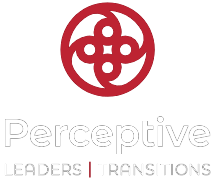Holly was an engineer in her late forties with a successful career in the sciences. She enjoyed the work, the deep expertise she had developed, and being part of a larger scientific community. She was regarded as an expert in her field, and she enjoyed the prestige this afforded her.
She had also become increasingly frustrated by her lack of progression and she felt unsupported by her company. Holly suspected she may need to leave her company. She felt stuck and wanted help sorting out if leaving was the right choice for her. She engaged a coach to help her thoughtfully consider her options.
Having spent most of her professional life at her company she had established herself there and worried that starting over someplace new may not be easy to do.
Working with her coach, Holly began to unpack what she was experiencing at work and how this was affecting her. Together they explored what was working well, what wasn’t, and where she wanted to go in her career. And importantly, what was sticky in the sense of keeping her stuck.
Holly derived a deep sense of satisfaction from her professional life. Over time her identity had become heavily wrapped up in her work. She spent long hours in the office, and this was becoming increasingly difficult to sustain. It had come at a cost to her personal life, and she knew something needed to change, whether she remained at her current employer or not.

As part of the coaching process, Holly completed two assessments which provided a rich source of information that helped her understand what brings her satisfaction and why her current work environment was largely unsatisfying. Through this lens, she was able to see what would need to change if she were to stay or what she should look for in a new work environment.
What also emerged more fully was that Holly wanted to move into new areas in her scientific work. She began to realize how important this was to her, and that it was a critical piece of why she was feeling unsatisfied in her work. Her feeling thwarted had less to do with her title and career progression and more to do with the opportunity to do the work she wanted to do.
Holly thought it unlikely that she would be able to do the work she wanted to do at her current company. Her coach suggested that she test out that assumption. Over the course of several weeks, Holly was able to meet with people in her company who could help answer this question. Her assumptions turned out to be correct, at least for the foreseeable future.
The clarity Holly achieved regarding her career aspirations including how they had changed over time, combined with having greater insight into why her current work situation was a difficult one for her, became the impetus behind her confidently making the decision to leave her organization.
Holly began to seek out opportunities that were a better fit for her. She was a bit surprised and delighted to see just how many opportunities there were to work in the areas she aspired to. She went on to join a company that was a much better fit; both in the work environment and a role that would allow her to do the scientific work that she aspired to.
As she excitedly moved into her new position, she was committed to carrying with her the practices that she had adopted to help her better manage her predilection to overwork. She knew this would be important going into a new company where she might overwork in her desire to demonstrate her competency in the new role.
A year later, Holly reported that she was very happy in her new company, and role. She was able to keep her work in check and she was proud of this accomplishment. As she put it, “it was the right decision for me to move on and I’m so glad I made it.”
Note: To honor confidentiality and protect the privacy of our clients we do not use names and have altered possibly identifying details in this Case Study.
About Perceptive Leaders LLC
Perceptive is a boutique leadership development and professional transitions consulting firm based in Denver, Colorado serving clients in the US and Canada, since 2005. We have worked with over 1,000 senior organizational leaders and accomplished career professionals to help them recognize opportunities for impactful and substantive change and how to realize that transformational change. For more than 15 years, Perceptive has been helping leaders and their teams transform their leadership. For more information, visit perceptiveleaders.com.
© Perceptive Leaders, 2022. All rights reserved.





